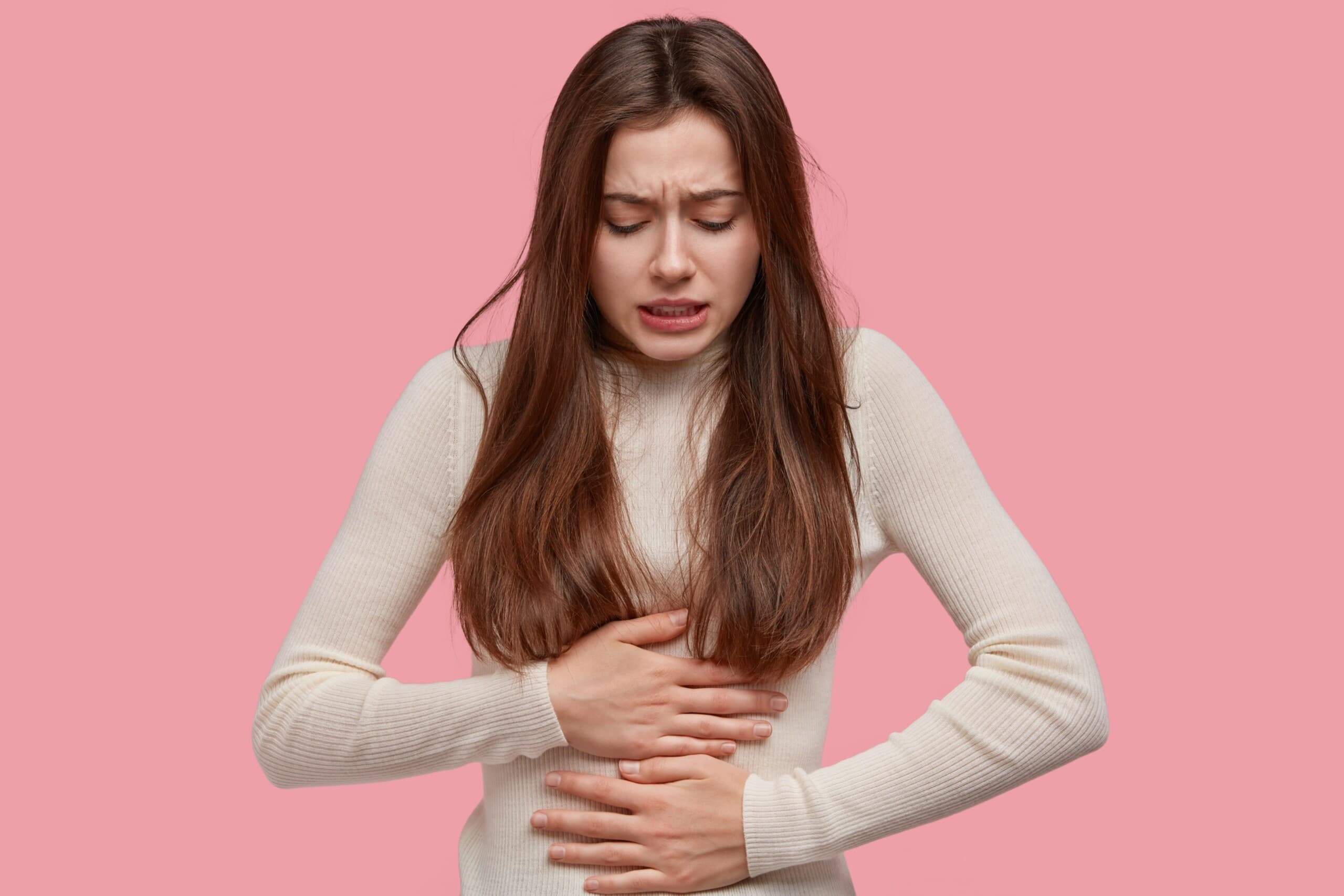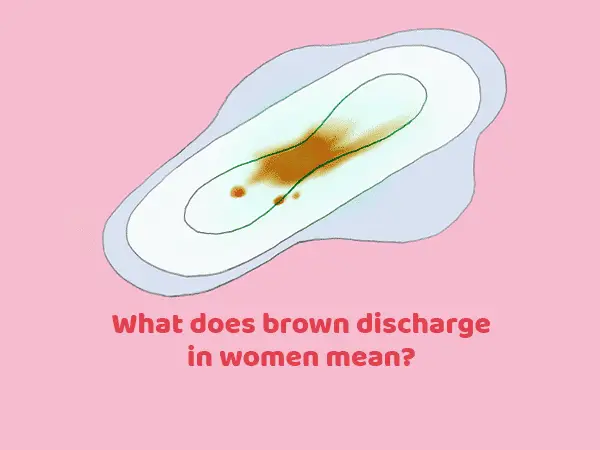Brown Discharge After Periods- What Causes This Discharge?
Are you having a brown discharge after Periods and concerned about it? Brown discharge after Periods or before a period is a normal occurrence. It could be resulting from a small amount of period blood in the discharge as the period starts. It also may be dry and old blood that leaves the vagina after a time period.
However, in a few cases, brown colour discharge after a period might be a symptom of another underlying condition.
This article addresses the issue when people experience brown discharge after a Period and when they must see a doctor.
When is the brown discharge more likely to occur?
There are numerous possible reasons for brown discharge in period or spotting. While it is certainly common during the beginning of the period to and shortly following the period, it does have additional possible causes. These could be benign or might need medical attention.
Here’s a list of factors that may lead to brown discharge after a period.
1. Dry Period Blood (before and after a period)

Blood that takes a long time to exit the body grows darker, often it turns brown. It might also seem slightly thicker, clumpier, and drier than regular blood.
This brown colour is mostly the outcome of oxidation, which is a natural process. It occurs when the blood gets in contact with air.
It is usual for any person to get brown vaginal discharge several days before the period starts, as well as several days after the period ends. When this discharge occurs before the period, it is likely to be a light and early flow. Following the period, brownish colour discharge is a result of residual menstrual blood moving out of the vagina.
Some women encounter brown discharge for either a day or two following the end of the period. Others get a brown discharge that might come and go for either a week or two. It typically just depends on how well the uterus emits its lining and the rate at which the blood exits the body. The human body is complex and everyone possesses a different rate at which blood exits the body every other month.
2. PCOD- Poly-cystic Ovarian Syndrome
This is a condition in which the hormonal levels of a woman are affected. Higher levels or rise in the level of male hormones in the body causes irregular periods at times while sometimes it causes no periods at all. Poly-cystic ovarian syndrome or disease is affecting nearly 6 to 10 % of women in their childbearing ages.
Sometimes brown discharge after period might happen within the same period. Other times it may be the old blood residue from the previous month.
Some other symptoms of PCOD are:
- Obesity
- multiple ovarian cysts
- dark skin patches
- obesity
- infertility
- unwanted or excessive hair
3. Perimenopause

Perimenopause is when the body starts making a natural transition towards the menopause stage. It usually starts 10 years before menopause starts officially in the female body. Usually, it takes place in women of age 30 to 40.
During perimenopause, Estrogen levels keep rising and falling thus creating changes in the menstrual cycle. Perimenopause periods could either be longer or shorter. You might also notice cysts without ovulation. Some other symptoms that are common during perimenopause include:
- Mood swings
- decreased sex drive
- vaginal dryness
- trouble while sleeping
- hot flashes
4. Birth control implant
A birth control implant is a hormonal birth control implanted into the upper arm just beneath the skin. It releases a hormone called progesterone to prevent pregnancy. Irregular menstrual bleeding with brown discharge after period are some common side effects for when the body adjusts to hormonal changes.
5. STDs
Some sexually transmitted diseases or infections might also cause brown discharge after the period or spotting just outside the period. These diseases include gonorrhoea, chlamydia, and bacterial vaginosis.
Some other common symptoms you should look out for include painful urination, pelvic pain, pain with intercourse, and other vaginal discharge.
6. Pregnancy-related causes
During unexpected or early pregnancy, an individual might feel harmless spotting, brown discharge, and light bleeding. This might happen as a result of implantation bleeding, which may occur when the embryo at first adheres to the uterus, or due to the uterus discharging old blood.
In later stages of pregnancy, this brown discharge might be a symptom of problems with the placenta or a sign of preterm labour.
Pregnancy-related bleeding might be an indication of early pregnancy loss also if:
- The bleeding becomes heavier.
- If abdominal cramping also starts.
- The secretion of fluid or tissue co-occurs with it.
If an individual sees brown discharge through pregnancy, they must talk to their healthcare providers to know the reasons and reach a diagnosis.
7. Birth Control
Some birth control techniques might lead to spotting or some kind of brown discharge. For example, a person might undergo irregular bleeding during this time for nearly 3–6 months after the installation of an intrauterine device (IUD).
As per the Society of Obstetricians and Gynaecologists of Canada, using birth control pills may lead to spotting in the vagina or brown discharge for the initial few months of using them. Spotting is more usual with progestin-only contraceptives than with pills that also have estrogen. It may also happen when people consume a pill late.
People must visit their doctor if they notice abnormal bleeding even after 3 months of taking the same birth control method.
8. Hormonal imbalances

Hormonal imbalances might also result in spotting and bleeding between the periods, which might lead to brown discharge after periods. Several factors can alter hormone levels and create abnormal bleeding from your uterus. These include:
- Significant weight changes.
- Stress
- adrenal or thyroid gland issues
- Liver and kidney disorders
- Diabetes
- Medication that affects progesterone and estrogen.
People having abnormal bleeding within their periods must see a doctor and review treatment options.
What Causes brown discharge after missed periods?
If you have missed your period, you might have a brownish discharge instead of a routine period or have it a day or two after the estimated end of the period. PCOS or PCOD and perimenopause are probable causes.
You might also encounter fumbled periods accompanied by brown discharge if you have freshly started adopting a new hormonal method for birth control. Sometimes it may also be an indication of pregnancy.
Brown discharge may substitute a period or appear following a missed period in your early pregnancy. Some other indications and symptoms of initial pregnancy include mood changes, dizziness, vomiting, morning sickness, nausea, sore breast, and fatigue.
Brown discharge after periods alongside other symptoms
Although brown discharge after your periods is not that big of a deal normally, it can symbolise a predicament when followed by other symptoms. Here is a look at what it might mean:
Brown discharge after periods and cramps

If you encounter brown discharge after periods along with cramps, it might be due to PCOS or initial pregnancy.
Premature(ly) miscarriage might also produce these conditions. Sometimes this bleeding alongside cramps are confused for periods while they are due to miscarriage. The blood due to a miscarriage could be red, but it could also be brown coloured and match coffee grounds.
Brown discharge with odour after period
Period blood normally has an odour, but if you find out the brown discharge has a strong odour, the most probable cause of this might be a sexually transmitted disease.
Brown discharge after periods could also be a symptom of an issue when it is supplemented by additional symptoms, such as pain and a powerful odour. Modifications to the menstrual cycle, such as irregular periods and missed periods or heavy periods might also be a sign of a problem.
When to visit a Doctor
Visit a doctor if you are concerned about a brown discharge after periods or experiencing a lot of it. Also, visit a doctor if you assume you may be pregnant or have another concerning symptom. Some additional symptoms are:
- pain and cramping
- itching
- a stinging or burning sensation when you urinate
- a powerful odour
- serious vaginal bleeding
The Bottom Line
Brown discharge after periods normally is not a cause of worry as it is nothing more than the regular, old, and dried blood.
If you notice other troubling symptoms or there is a chance you could be miscarrying or pregnant, make sure you make an early appointment to visit a doctor as soon a possible.
This was all about the causes of brown discharge after periods and when you should be concerned about it.

